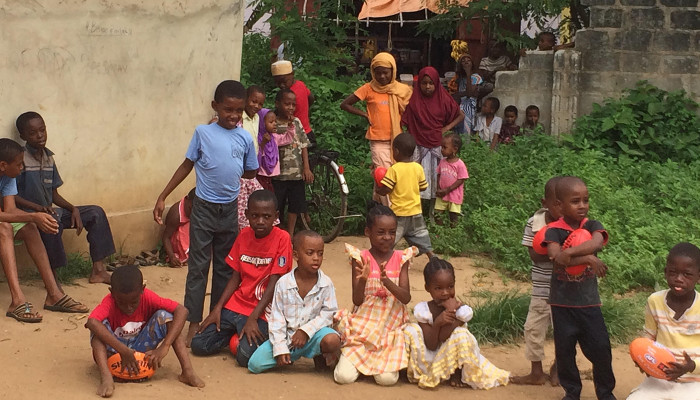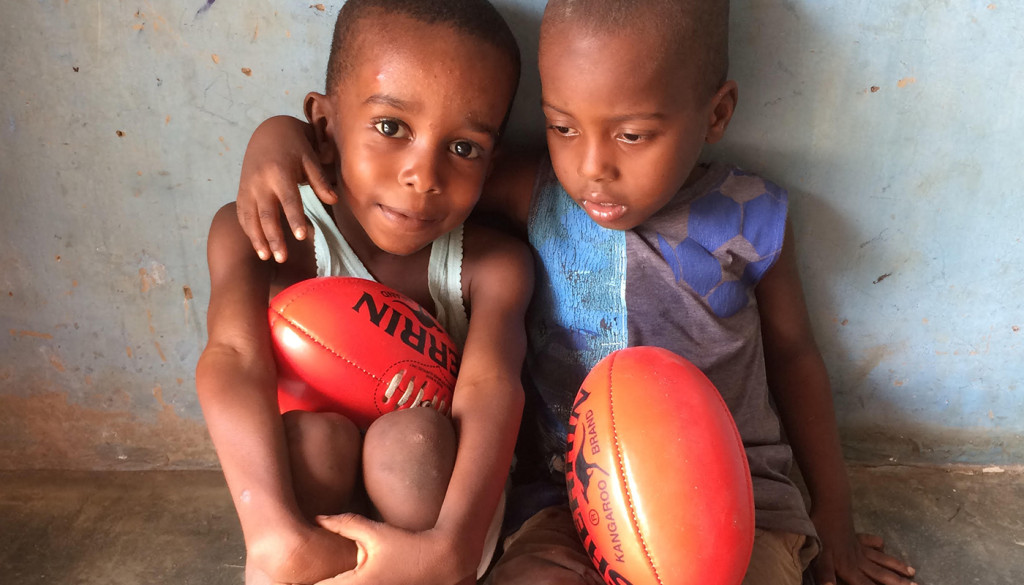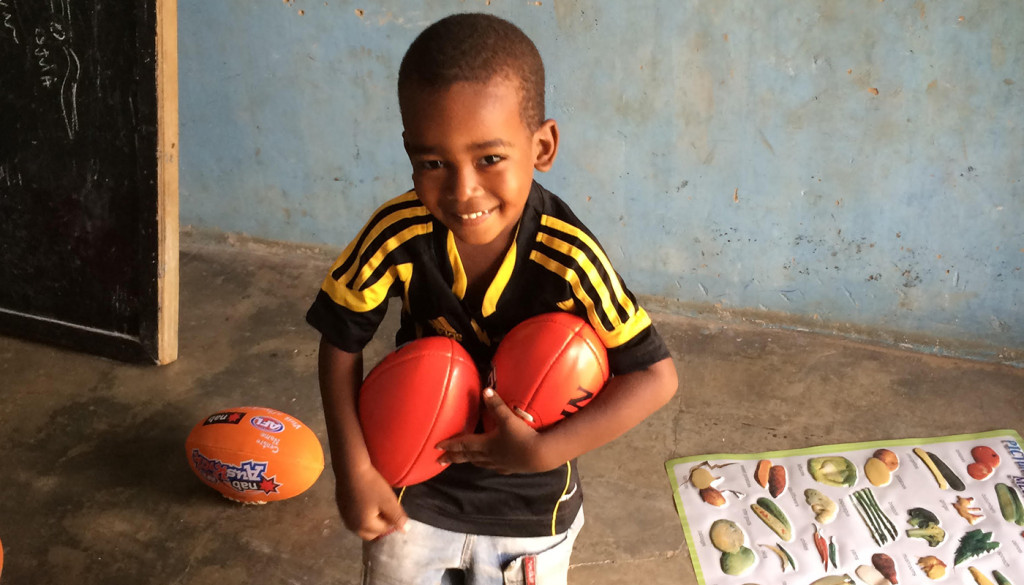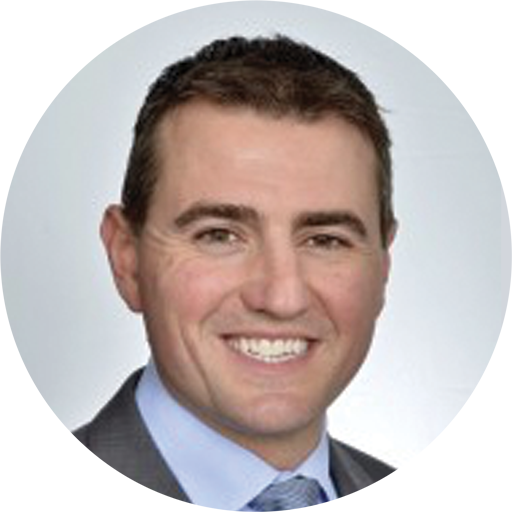Australia, the Privileged Country

The summer holiday season in Australia means tennis, cricket and swimming. It means making the pilgrimage to the coast for New Years and countless barbecues with family and friends. Generally speaking, the greatest challenges that the everyday Australian faces during this time are avoiding sunburn, finding somewhere with air-conditioning and securing spectator tickets to the most anticipated sporting contest.
Australia has always been branded the ‘Lucky Country’. No, we’re not. We’re the ‘Privileged Country’. Teenagers recognise this; they humour themselves by describing the inconveniences of their everyday lives as ‘first world problems’. We are privileged because our geographical isolation, low population and egalitarianism mean that we have the security of free healthcare, social welfare, education and the means by which to access these. Regrettably, our introspective media often reiterates the problems in Australian society rather than celebrating our many privileges. However, it is only once we leave our hallowed shores that Australians are reminded of this fact.

Unlike my contemporaries, I spent my New Year’s break and annual leave volunteer teaching in Tanzania. This experience was both wonderfully entertaining and deeply rewarding. Living with my girlfriend in very primitive volunteer housing, we would catch a minivan (parochially named a ‘Daladala’) to our school each day. These Daladalas are donated by schools around the world, so a tourist would not be remiss in thinking they had seen a Japanese nursery or British grammar school bus drive past them whilst they were in the depths of Africa.
The cliche is true; the children we taught had nothing. For us to even reach our school, we had to trek through jungle until we reached a concrete box with no electricity, no windows, no chairs nor desks – and certainly no teaching provisions! The benefit of foresight had equipped us with teaching resources and AFL footballs, much to our students’ excitement. Our teenage students (mainly boys because the girls had to help their mothers with cooking and cleaning) took to AFL like an Aussie expat takes to Tim Tams or Shapes. Leaving a few footies behind after class each day, we were always stunned by the kids’ daily skills improvement.

The increasingly dusty, dirty footies confirming that they had spent much time overnight practising their marking and handballing. When we left, we gave them the chance to select a present from a bag of goodies we’d brought over. In spite of the glitzy stickers, colourful erasers and high-tech water bottles, our students selected the simple pack of ten grey-leads that we’d purchased for tuppence from an Australian supermarket chain. Funny isn’t it … I have a sneaking suspicion their Australian contemporaries would have tried to choose the smartphone in our pockets if we’d given them the chance. I mean, the iPhone games are just so fun!
Africa is a complex continent and has a myriad of challenges. Most presciently, its challenge is its international perception. I dare you to read the Africa section of any international online newspaper and find one single positive story. You are likely to be bombarded with updates about Boko Haram, Ebola, some form of natural disaster and the chronic suffering. These are serious concerns and, once again, reiterate why Australia is privileged. Remember also that Africa is a continent not too dissimilar from its old colonial patriarch – there are many different languages, customs, religions, tribal expectations and consequential challenges.
At the same time, Africa is profound. It moves you in a way no other continent can. To see people with nothing who are largely accepting of their fate is surprising. To give them a hand up (not a hand out) and see their appreciation is invigorating. To help a fellow human and make the world a better place reminds us that we are human … what really does matter in life? Can you make a difference for the better?
Naysayers will be quick to elucidate that you can’t really effect change in the world. Once again, I disagree. You can’t help all the people all the time, but you can help some of the people some of the time. Think of Nancy Wake, an Australian nurse who helped French Jews escape Vichy France and the horrors of the Holocaust. She is an Australian hero who was not impeded by an awareness that she couldn’t help all four million Jews who would suffer the tragedy of the Shoah.
Think also of Simpson and his donkey, who tirelessly trekked the Gallipoli shoreline to save injured Australian soldiers. Similarly, his determination was not stifled by the knowledge that some of his compatriots would unfortunately still suffer. And, he paid the ultimate price for this altruism.
Think also of the Australian defence force, firefighters, police officers and paramedics who everyday risk their lives to protect us. Their commitment to our country is not compromised by the daily news of deaths, fires and other devastation which tragically shocks our local communities. There is also an amazing sense of security to know that you can trust our government’s protective forces. Not everyone in the world can have the same sense of confidence in their national security forces; many fear them.
The electronic reflections of many Australians (i.e. their social media profiles and communities) are awash with photographs of people’s faces, food and ‘memes’, the habit of captioning a well-recognised photograph with a funny or relevant comment. However, at the turn of our century, the meme (in its unadulterated definition) was ‘corporate social responsibility’. Internationally, well-known brands were expected to give back to society using some of the endless profits they seemed to have amassed. In our contemporary society, where individuals are ‘brands’ and entities unto themselves, it is time for ‘personal social responsibility’. In other words, what will you, as an individual, do to make your world a better place? What will you, as someone from the ‘Privileged Country’, do to recognise how truly fortunate you are?
Anyone who queues for two hours for a meal at an exclusive restaurant, who works out at the gym to flaunt their body during these sunny months, or who watches their football team come back from loss to win the game by a point knows that it is only with great challenge that we reap great reward.
Remember the old saying ‘what you sow is what you reap’? Well, it is reasonable to believe that the closest many Australians would come to this physical chore is in choosing which type of bread to purchase at the bakery or supermarket. However, by engaging in ‘personal social responsibility’ and trying to make the world a better place, this colloquialism is once again enlivened – your positive, generous act inevitably helps at least other. And, who knows, it may even help you too.
Read this post on LinkedIn.
This article was originally published in The Lion, Issue 123.
